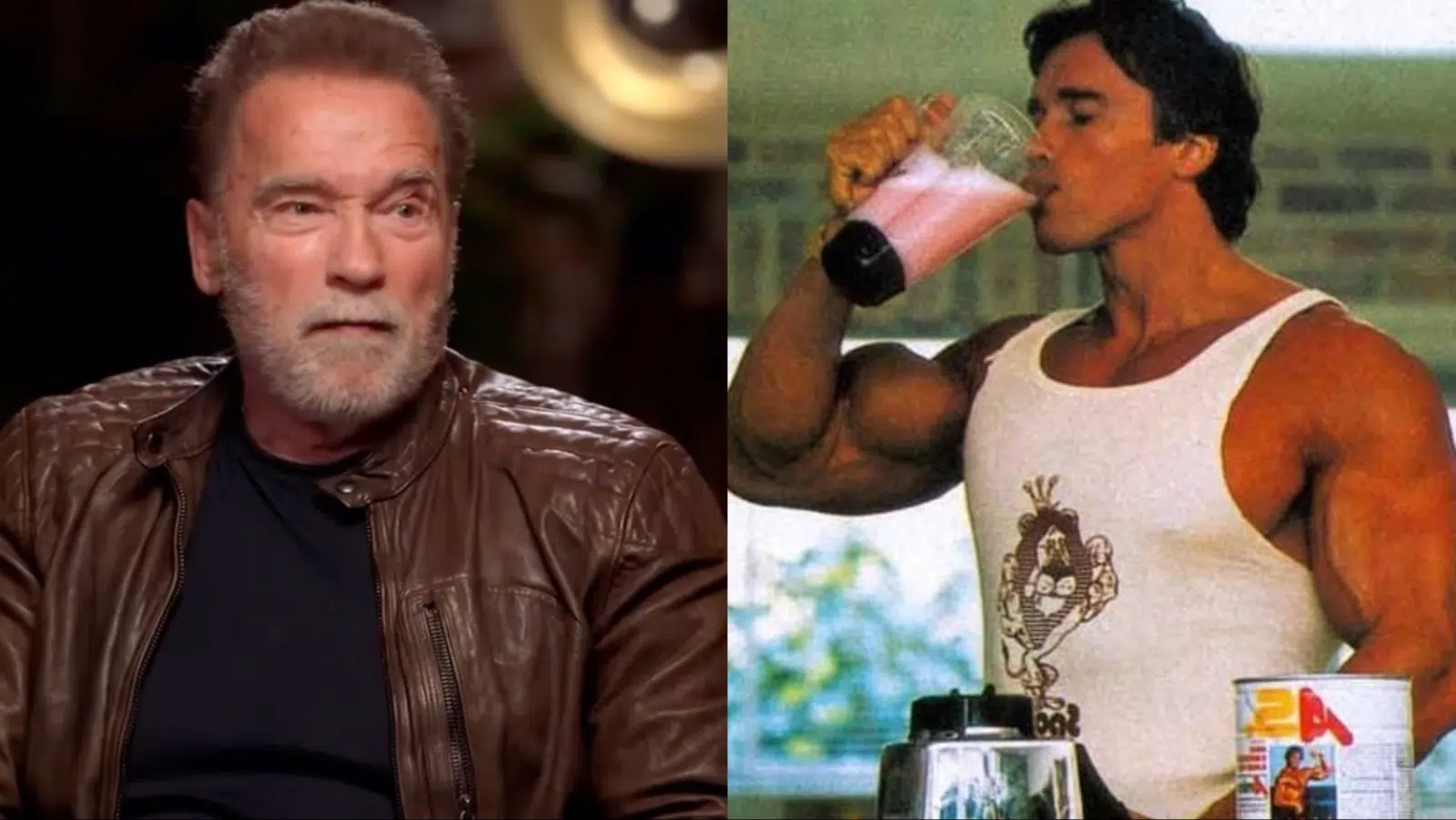Arnold Schwarzenegger has always had the fitness and bodybuilding community’s best interests at heart. On January 24, 2025, he issued a serious warning about protein powders, revealing that nearly half of them contain heavy metals like lead, which can pose significant health risks.
Arnold Schwarzenegger is considered one of the greatest bodybuilders of all time after dominating the stage in the 1970s and ’80s to secure seven Olympia titles. However, since retiring from the sport, Schwarzenegger has stayed dedicated to improving the fitness and bodybuilding communities.
Through his newsletter, Arnold’s Pump Club, he regularly shares insights and advice based on his years of experience. Among the many topics he addresses, ingredient integrity remains a top priority. Schwarzenegger has frequently pointed out the lack of transparency in supplement labels, particularly concerning their quality and safety for consumers.
Arnold Schwarzenegger Shares ‘The Truth About Protein Powders and Heavy Metals’
Recently, Arnold Schwarzenegger revealed a study that suggests nearly half of the protein powders available on the market contain heavy metals like lead. However, he cautions his readers to dig a little deeper before throwing their protein to the ‘whey’ side.
“The Truth About Protein Powders and Heavy Metals
Protein powders appear to be the safest supplement you could use. However, a recent report from the Clean Label Project has caused widespread panic.”
“The report suggests nearly half of the most popular protein powders tested contain heavy metals (like lead) at levels exceeding government safety regulations.”
“But everything is not as it appears.”
Schwarzenegger points out that there are discrepancies in the information available, which includes what brands were actually tested.
“We are not here to question the accuracy of the results, but it’s worth mentioning the report is not based on a published study and has not been peer-reviewed. The Clean Label Project analyzed 160 protein powders from 70 “top brands,” so there are some gaps in what we know (such as what brands they tested). Their results found that:
47% of products exceeded safety guidelines for heavy metals like lead and cadmium, but they were not the FDA safety guidelines.
Organic products had three times more lead and twice the cadmium than non-organic options.
Plant-based proteins contained three times more lead than whey-based alternatives, due to how plants absorb metals from the soil.
Chocolate-flavored powders had up to 110 times more cadmium than vanilla.”
While The Clean Label Project’s findings can appear alarming, trace amounts of heavy metals are commonly found in items individuals are exposed to daily.
“Despite these findings, experts agree that protein powders are unlikely to harm most people.
That’s because heavy metals exist naturally in soil, water, and food, meaning you’re exposed to small amounts daily, and your body can process and handle them up to a certain threshold.”
Since the study didn’t disclose the specific levels of heavy metals, it’s difficult to fully understand the degree of risk that protein powders might actually pose.
“It’s hard to say if the powders tested are dangerous because The Clean Label Project did not list the products they examined or share the level of heavy metals, so we don’t know how much risk they pose.”
However, when compared to drinking water or fruits and vegetables, protein powder appears to have a relatively low risk to your health in terms of heavy metal poisoning.
“Most people don’t realize drinking water can contain more lead than protein powder. In fact, the Environmental Protection Agency (EPA) estimates that drinking water can make up 20 percent or more of a person’s total exposure to lead. And because lead is an elemental metal found in the earth, trace amounts are also found in plants, fruits, and vegetables.
So, your goal isn’t to try and avoid all heavy metals but to reduce total exposure.”
Schwarzenegger points out that it is still important to consume a protein powder that tests for heavy metals and is NSF Certified For Sport or Informed Sport.
“That’s why the latest study is a good reason to rethink your current protein powder, as most protein powders are not tested for heavy metals.
If you want a protein powder that is guaranteed to have lower amounts of lead and cadmium, then you should only purchase products that are NSF Certified For Sport or Informed Sport.”
Choosing a certified protein powder ensures you are getting quality ingredients.
“NSF Certified For Sport tests every batch to ensure no dangerous levels of metals like lead or cadmium. Our go-to certified protein is Momentous (they have whey and plant-based protein), which passes all the tests for purity, quality, and safety.
Other products might be cheaper, but that’s likely because they don’t spend on safety, purity, and active doses of ingredients that make a difference.”
Arnold Schwarzenegger emphasizes mindfulness when purchasing supplements to ensure health and safety.
“If you use a protein powder, you don’t need to fear all toxins because your body is built to handle them. Instead of avoiding everything toxic, be mindful of your overall exposure and try to purchase supplements that keep your safety in mind.”
With so many misconceptions about health and fitness, it is easy to see why individuals struggle to stay on the right track. Thankfully, Schwarzenegger is working to dismantle these myths and set the record straight. When it comes to protein powder, he recommends choosing a brand that is certified to ensure you get the highest quality ingredients that protect your health.
Tip: If you're signed in to Google, tap Follow.









